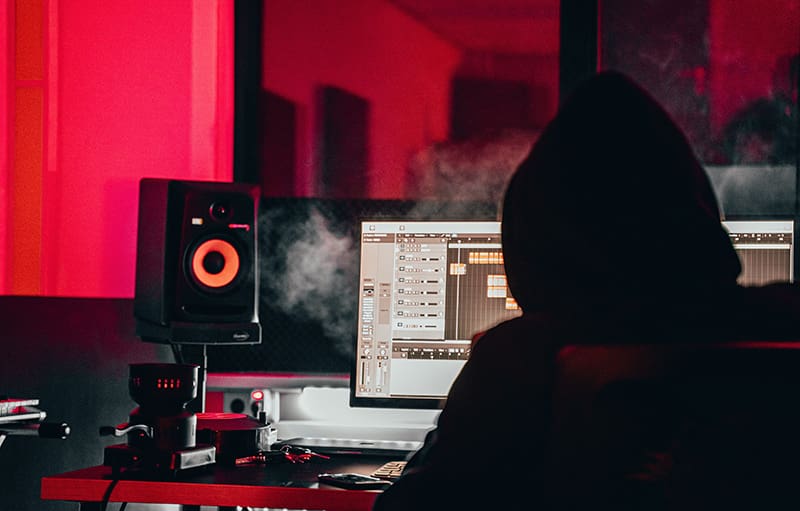What is a Ghost Producer? 10 Key Facts You Should Know

What is a Ghost Producer: Everything You Need to Know In recent years, the world of music production has witnessed the rise of a relatively unknown but increasingly important figure – the ghost producer. You may have heard the term tossed around in discussions about the music industry, but what is a ghost producer, and why have they become so significant in today’s music scene? In this comprehensive guide, we will explore the ins and outs of ghost production, its impact on the music industry, and the ethical considerations surrounding it. Table of Contents 1. Introduction to Ghost Producers The music industry is often associated with glamorous artists and producers who work tirelessly to create hit tracks. However, behind the scenes, there is a lesser-known group of individuals who play a crucial role in crafting these songs. These unsung heroes are ghost producers. While the artist may take center stage, the ghost producer remains in the shadows, creating the actual music or contributing significantly to its production. Ghost production is particularly common in electronic dance music (EDM), pop, and hip-hop, but it spans across many genres. It’s a practice that raises both intrigue and debate, as it brings into question issues of authenticity, creativity, and recognition in music. 2. What is a Ghost Producer? What is a ghost producer? Ghost production refers to the practice where a producer creates a track or a piece of music that is officially credited to another artist. In simpler terms, a ghost producer composes, arranges, and sometimes mixes a song but does not receive public credit for their work. Instead, the track is released under the name of the purchasing artist, who then takes full credit for the music. While it may sound controversial, ghost production is a legitimate business model and a common practice in the music industry. It’s an agreement between the ghost producer and the artist, where the producer is paid for their work, usually with no expectation of public recognition. Ghost producers can either work independently or through specialized ghost production platforms. 3. Why Do Artists Use Ghost Producers? There are several reasons why artists choose to hire ghost producers. The most common reasons include: 4. The Role of a Ghost Producer A ghost producer’s role may vary depending on the agreement with the artist. In general, ghost producers are responsible for: 5. How Ghost Production Works The ghost production process begins with an agreement between the artist and the producer. This could be through a ghost production platform, a direct contract, or a freelance agreement. Here’s how the process typically unfolds: 6. Advantages of Ghost Production for Artists Ghost production offers several benefits for artists looking to maintain their relevance and reputation in the music industry: 7. Criticism and Ethical Concerns While ghost production is a common practice, it is not without its controversies. Critics argue that: However, proponents argue that ghost production is a business arrangement, and as long as both parties are satisfied, there is no ethical issue. 8. Famous Artists and Ghost Production Over the years, many prominent artists have been associated with ghost production. While the specifics are often kept confidential, several high-profile cases have come to light. In the world of EDM, it’s not uncommon for big-name DJs to rely on ghost producers. For example, it has been rumored that top-tier DJs like David Guetta and Steve Aoki have used ghost producers for some of their tracks. Ghost production is not limited to EDM. In hip-hop and pop music, many successful artists and producers collaborate with ghostwriters and ghost producers to create chart-topping hits. 9. Ghost Production in Different Music Genres While ghost production is most commonly associated with electronic music, particularly EDM, it is prevalent in other genres as well: 10. The Business of Ghost Production Ghost production is a booming business, with ghost producers working as freelancers or through specialized platforms. These platforms act as marketplaces, connecting producers with artists who need music. Ghost production platforms like The Ghost Production and EDM Ghost Producer have become go-to resources for both aspiring and established artists. Ghost producers can charge anywhere from a few hundred dollars to several thousand, depending on their experience, the complexity of the track, and the client’s reputation. 11. Ghost Producers and Copyrights A key aspect of ghost production is the transfer of rights. Typically, the artist purchasing the track receives full rights, meaning they can distribute, perform, and monetize the track as their own. The ghost producer relinquishes all rights to the music, including royalties. In some cases, ghost producers negotiate for a share of royalties or a higher flat fee if the track is expected to be highly successful. However, this is less common. 12. How to Become a Ghost Producer Becoming a ghost producer requires advanced music production skills, creativity, and an understanding of industry standards. Many successful ghost producers started as independent producers, honing their skills by making beats or remixes before transitioning to ghost production. Here are a few steps to becoming a ghost producer: 13. Ghost Production Platforms Ghost production platforms serve as marketplaces where artists can browse and purchase tracks from ghost producers. These platforms offer a range of services, from track production to mixing and mastering. Some popular platforms include: 14. Is Ghost Production Right for You? If you’re an artist who struggles with the technical side of music production or simply doesn’t have the time to produce music regularly, ghost production can be a valuable solution. However, it’s important to consider whether you are comfortable with the idea of taking credit for someone else’s work. On the other hand, if you’re a producer looking for a way to monetize your skills, ghost production can offer a steady stream of work. However, you must be prepared to work anonymously and give up the rights to your creations. 15. Conclusion: The Future of Ghost Production Ghost production is here to stay. As the music industry continues to evolve, more artists are likely

